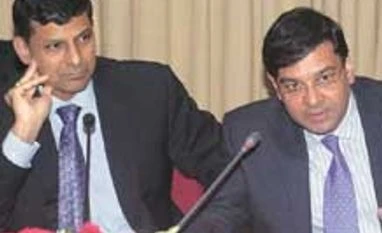The committee, headed by RBI Deputy Governor Urjit Patel, had suggested dependence on cash management bills (CMBs) and the market stabilisation scheme be phased out.
Ministry officials said CMBs were as much a requirement of RBI as of the government. “The question is of utility and function. Last year, CMBs were entirely used for monetary purposes by RBI to suck out liquidity in the short-term market,” a ministry official said on condition of anonymity.
More From This Section
CMBs, short-term paper of seven days to a year, with flexible tenures, were introduced to address the government’s temporary cash flow mismatches. In July-August 2013, when the rupee was depreciating, RBI sold CMBs to drain out liquidity. Under its market stabilisation scheme, the central bank issues bonds to absorb excess liquidity. An RBI executive said these instruments were not in use.
“If the government is spending more, it impacts liquidity in the market. So, to manage that liquidity, RBI has to sell CMBs,” said Soumya Kanti Ghosh, chief economic advisor, State Bank of India. He added it would be logical to phase out these papers when the government fully took over the debt management role from the central bank.
The RBI executive said CMBs were used to manage the government’s cash volatility, adding the finance ministry only decided when to float these papers.
The ministry official agreed once debt management was out of the RBI portfolio, some facilities like these could be separated. “Even when debt management comes under the DMO (debt management office), RBI will provide certain facilities to the government. So, it is an area that needs to be clearly defined. It’s too premature to talk about that. It is not even on the horizon,” the official added.
The Public Debt Management Agency of India Bill proposes to set up an independent DMO in the finance ministry. The Bill is seeing inter-ministerial discussions. Once this is over, the ministry will seek Cabinet approval for introduction of the Bill in Parliament, likely only after the Lok Sabha elections.
Currently, debt, including market borrowing, is managed by RBI. The finance ministry has said this has led to a conflict of interest, as RBI is the monetary authority, playing a crucial role in determination of interest rates in the market, as well as the banker to the government.
In Budget 2007-08, Finance Minister P Chidambaram had proposed to set up an autonomous DMO. In September 2008, a middle office was set up in the finance ministry to facilitate the transition to a full-fledged DMO.
Initially, RBI was against shifting the DMO to the finance ministry, owing to human resources and manpower concerns. However, unlike predecessor D Subbarao, RBI Governor Raghuram Rajan doesn’t appear to be opposed to shifting the DMO to North Block.
)